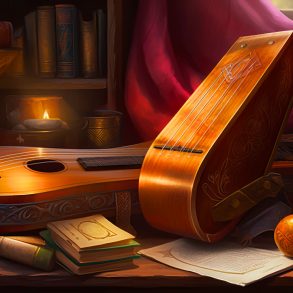From Magic Missile, to Mage Armor, Shield, Ray of Frost, Counterspell, and even the fabled Fireball, Wizards are by far the most versatile spellcasters in the game, barring the Sorcerer’s metamagic. Driven by a thirst for knowledge, quite a few tend to see adventure as a way of performing hands-on studies, perfecting their grimoire of magic to the point where nothing is impossible for them, with the Wish spell filling in any and all gaps.
Bookworms: How Wizards Work
Of course Wizards gain more spells as they level, but there’s a problem: they don’t prepare spells like Clerics or just know their spells like Sorcerers. That’s because Wizards prepare their spells every long rest, but only prepare them from their spellbook rather than from their whole list. They gain a limited number of spells from leveling up, which they add to said book–a Wizard’s most prized possession.
From their spellbook, a Wizard can prepare a number of spells equal to their Intelligence + their Wizard level, and if they lose their spellbook they can’t change their prepared spells. A Wizard is also able to cast ritual spells directly from their book without preparing them, but only as a ritual. This differs from other ritual casters, who must either know the spell or have it prepared. Two Wizards can’t just share a spellbook either because every Wizard uses a unique style of notation for their spells. To add a new spell into your spellbook, which you could find on a spell scroll or in another Wizard’s book, you must be able to cast that level of spell and will need to spend 2 hours and 50GP per spell level to decode and transcribe it into your own book. If you want to write down a spell you already know, such as creating a backup spellbook (highly recommended) or writing a spell down for a fellow Wizard, then you can do so with only 1 hour and 10GP per level of the spell.
Spells: The Freebies
You don’t need to rely on friendly Wizards or finding spells though, at 1st level you’ll start with a whopping 6 spells. You’ll then automatically get to choose 2 spells every time you level up without any cost, but you can still roleplay the study and discovery of them if you like.
Regardless of how you learn new spells, you must choose a level of spell you can cast, so you can’t grab Wish as the very first spell you learn. As for the maximum amount of spells a Wizard can know… The answer isn’t solid, and varies depending on how many spells each Wizard can find. But if you need something to go off of, they will always know at least 4 spells, plus 2 for each Wizard level including 1st.
As for cantrips? That’s the easy part; you can see how many cantrips you should have at any given level by looking at the Wizard class table (PHB pg. 113). You don’t have to prepare your cantrips, and they don’t interact with your spellbook at all, which means you also can’t learn more from found sources unlike leveled spells. The only time cantrips will interact with your spellbook, is if you use the TCoE optional rule ‘Cantrip Formulas.’ If you use this rule, you can change one cantrip for another at the end of a long rest, as long as you have your spellbook.
Wizards are incredible, and capable of so many incredible deeds with even just a cantrip. But if you’re struggling to think of ways to improve your wizard, you can check out our Wizard section here. At Dice Cove, we know it’s sometimes difficult to understand how everything works in 5E, but we want to help you learn how to better mess around with the tools you have. From tricking guards into thinking the other one farted, to challenging someone to pronounce Prestidigitation on their first try, be creative and keep looking for ways to mess with BBEGs. It’s a wonderful world for you and your friends. So what are you waiting for? Go see what’s waiting in store. And we’ll be here every step of the way.






